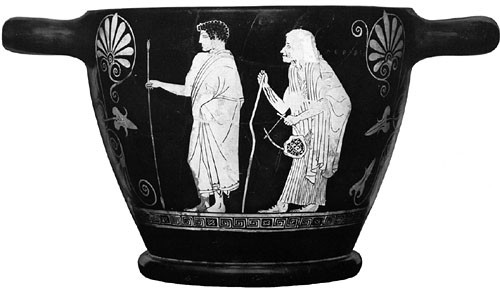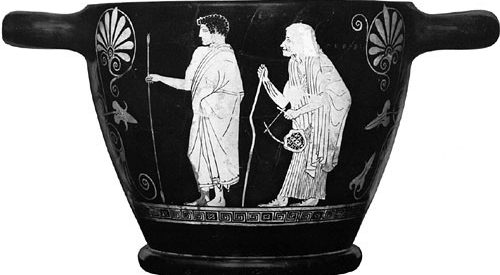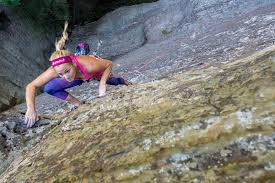
Recently, one of my students asked me what my definition of the word ?pedagogy? is, and in that moment, I decided that I could not adequately define such a word on the spot. I told her I would get back to her, and now ? this is my reply.
Pedagogy is a word used sometimes to describe learning theory and other times to describe the practice of such theory. It has become an academic term referring to the exploration of how knowledge and skill grow as facilitated within the context of another person or other people (ie students).
At the heart of any pedagogy is a theory of interaction. This theory describes the behaviors individuals encounter during the learning process. Often pedagogy is understood as a set of such behaviors that can be replicated, imitated or repeated for the purposes of institutional or social normative objectives; however, this understanding may be better described by the word curriculum.
Many distinct pedagogies have evolved over millennia, each reflecting a historical, philosophical, political, biological, social, psychological, scientific or personal stance. Many pedagogical theories include a paradigm of agency, where the roles of the learner and the teachers are defined and explained. For example, the role of teacher could be associated with coaching, or the role could be associated with modeling. There are, of course, many variations of the learner/teacher relationship, none of which is absolutely individualized, meaning most teachers use a blend of pedagogies when they interact with their students.
Professional educators are guided by pedagogies whether they are conscious of them or not. These theoretical frameworks of how learning works, shape their instructional decisions and therefore their actions as they relate to how they interact with their students. Most teachers are unaware of the pedagogies they enact, partially because the lines between various pedagogies are rarely clear, other times because teacher education rarely addresses learning theory, but mostly because nearly all teachers lack awareness of how deeply socialized they have become regarding their beliefs about how people learn.
Scholars, Henry Giroux and Philip W. Jackson, used the term ?hidden curriculum? to describe the unconscious consequences of socialization and the domestication of young people, through their families, religion, schools and other cultural institutions that reinforce social norms. The hidden curriculum is a powerful concept and for our purposes, I want to think aloud here about the hidden pedagogy. This describes when ?teachers? unquestioningly, and without reflection, or simply unintentionally subsume the pedagogical belief system or systems that were used to educate them when they were students ? from a very early age through adulthood. We adopt these means easily and naturally through repetition during the years of lives when we are dependent and impressionable.
The decision-making processes of teachers always influence the strategies, activities and assignments that they use to instruct their students, whether they are unconscious or conscious of them. And often, teachers are unaware of what learning theories they follow, despite any declarations they might make about learning theories they ?believe in.?
This is why pedagogy is important for teachers to consider. Without a terminology that we can use to identify the various aspects of teaching and learning and how they relate to the events that occur in our teaching, we cannot reflect, analyze and discuss what we understand and believe about our behavior and the behavior of others. Without a dialogue about interactions that are healthy, positive and effective as well as those that are destructive, corrosive and misaligned with our values, any thoughts, feelings or reflections we have about our roles as teachers, or as students will be consumed in the vacuum created by expediency, tradition and inertia.
Here are some examples of modes of pedagogical thinking:
The scientific pedagogy is most conventional at this time in the history of education policy and theory. It is primarily outcome-based, focusing on defined and pre-ordained subject matter and standardized basic skills that adult decision-makers (not learners) want teachers to transfer to learners, employing instructional models that include the use of conditioning through incentives, coercion, manipulation and other more forceful means used to achieve goals that were selected for the learner instead of by or with the learner.
Edward Thorndike?s theories are at the center of most outcome-based approaches. His ?law of effect,? his behaviorist paradigms, and his strong belief of human conditioning, similar to B.F. Skinner?s brought a seemingly orderly connection between curriculum and instruction.
Although some curriculum experts, like UBD originator, Jay McTighe, may describe the pedagogies that accompany their brand of curriculum as ?student-centered,? the fact that in their taxonomies, they employ terms like ?transfer goals? demonstrates that the concepts they base their frameworks on are reliant on the teacher acting as an agent of the dominant culture teacher, placing ?the teacher-as-agent? at the center of the instructional interaction, not the student.
The humanist pedagogy focuses on students? needs, backgrounds, interests and holds individual human freedoms as preeminent. This pedagogy is based on various developmental models from psychology, sociology and neurology. The pedagogs who are faithful to the humanist school, prioritize the use of a holistic approach to instruction. Teachers who ascribe to the humanist approach rely heavily on a diversity of developmental theories, of which Abraham Maslow?s hierarchy of needs and Albert Bandura?s theory of self-efficacy top the list. And, although John Dewey is most notably associated with pragmatist pedagogy, his strong belief in the autonomy of the learner influenced humanist psychologists like Carl Rogers, who unlike Thordike and Skinner concerned himself with individual human potential originating from within. Jean-Paul Piaget?s theories of development and assimilation also influenced the humanist school.
The liberal pedagogy makes the development of individual human potential central to the learning process, focusing on experiential, social and holistic education. Like the humanist school, the sources of this pedagogy are varied and concerned with human freedom and the potential for individual, optimal human performance over the coverage of generalized knowledge and skills. This approach though more student-centered, than the scientific approach in its application, is at its core, neither student nor teacher-oriented. The liberal pedagog values the spontaneity of experience as a catylizing force in the learning process. Economist and philosopher, Friedrich Hayek conceptualized the generation of new knowledge as spontaneous, and he placed ?learning? itself at the center of instructional interaction and activity as apposed to placing the teacher, the student, the culture or a grouping or a taxonomy of externally defined standards at the center of its pedagogy. The classroom teacher whose pedagogy of learning focuses on the spontaneous emergence of intellectual order is a liberal pedagog, using a multi-centric, diffusion of instructional and curricular methodologies. Those who ascribe to the liberal approach hold that free associated conversation, disequilibration, the reflection and the celebration of failure and the explicit modeling of continual inquiry as well as the regular questioning of otherwise culturally accepted knowledge claims or truths, laws or facts is for students and teachers essential and ought not be mitigated by preordained goals, objectives or idealized outcomes. Liberal learning is equally personal and impersonal. Although the tradition of the liberal approach extends back to Socrates and Confucius, Locke, Rousseau and Kant, as well as Americans, Tom Paine, Thomas Jefferson and Ralph Waldo Emerson contextualized the liberal tradition culturally in its application both in law and in art. French historian, Alexis de Tocqueville extended liberalism to include a global understanding of both individual and cultural liberties that further widened the lens of how liberalism was defined, applied and manifested, ultimately influencing the ideas of John Rawls, Richard Rorty and Ronald Dworkin.
Today, Parker Palmer, noted author and proponent of liberal education exposes a semi-democratic/Quaker-esque community approach to teaching, understanding that the knowledge of truth has interpersonal dimensions and that learning is the a journey of discovery through a personal past and focus on the present and attention to the future.
Vocational pedagogy is oriented toward the pragmatic training of specific technical skills through modeling, demonstration and other experiential methods. Vocational education often pairs experts (teacher) with novices (students) who through dialogue, practice, failure, reflection and other experiences, navigate new understandings of specific technical procedures together as mentor and protege.
Critical pedagogy has as its central goal human freedom. It?s primary preoccupation is questioning the power relations between students and teachers, but fundamentally it?s instructional orientation is about listening to students? perspectives. The goal of critical pedagogy is less about knowing objective reality and more about facilitating an evolving understanding of reality. The roles of students and teachers in this pedagogy defies traditional paradigms.
There are many others.
The threshold between curriculum and pedagogy has been historically vague. And, the persistent idea that pedagogy is about teaching methods and strategies as if they are the same as various approaches to instruction also confounds anyone trying to conceptualize the basic essence of the term. Ultimately, this strange word refers to the academic examination of processes used in the acquisition or assimilation of new knowledge by an individual in an educational context. This epistemology considers the various types of interactions that take place during learning.
Although the character of the pedagogue is associated with a strict, pedantic and demanding headmaster-type teacher, the original Greek word, paidag?gos has a very different connotation, referring to an adult who in servitude and with great care, literally guides a child to school (to learning). And, that?s how I like to think of it. Therefore, pedagogy refers to how we may choose to or how we may unconsciously guide, through our behavior and interactions the students who we choose, those who choose us and those who are assigned to us.


